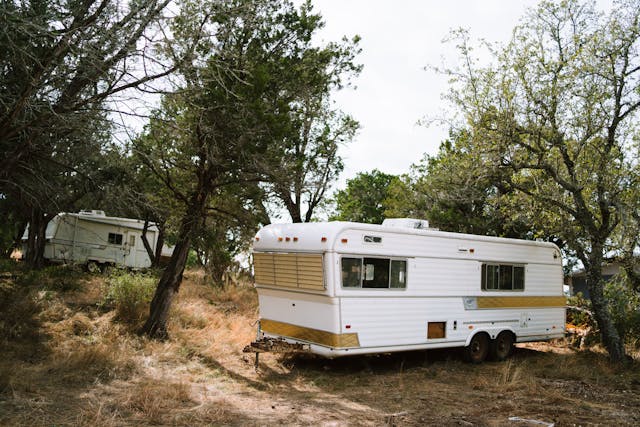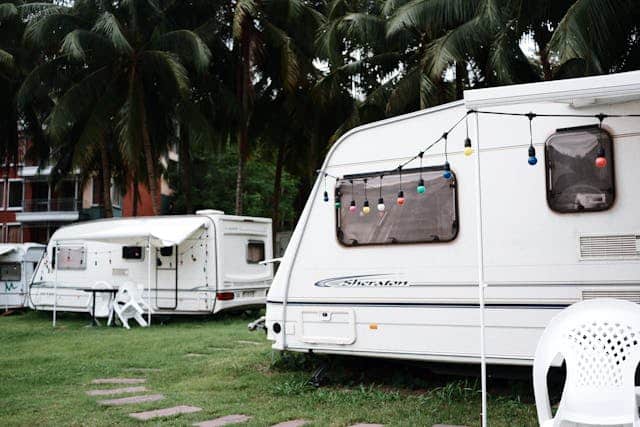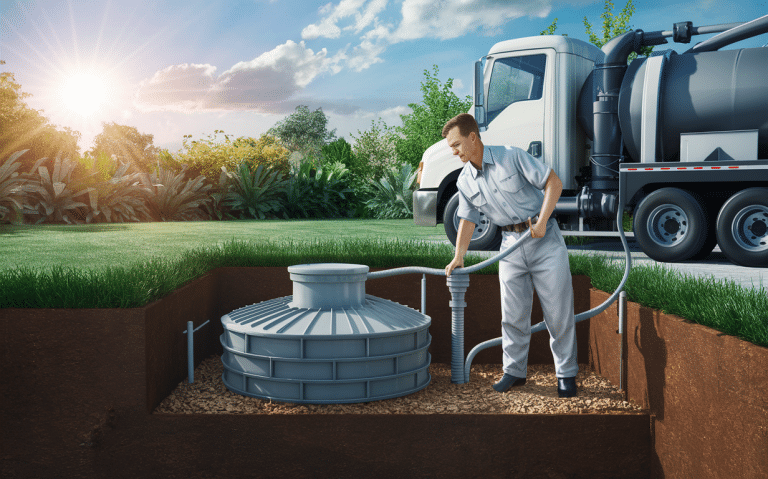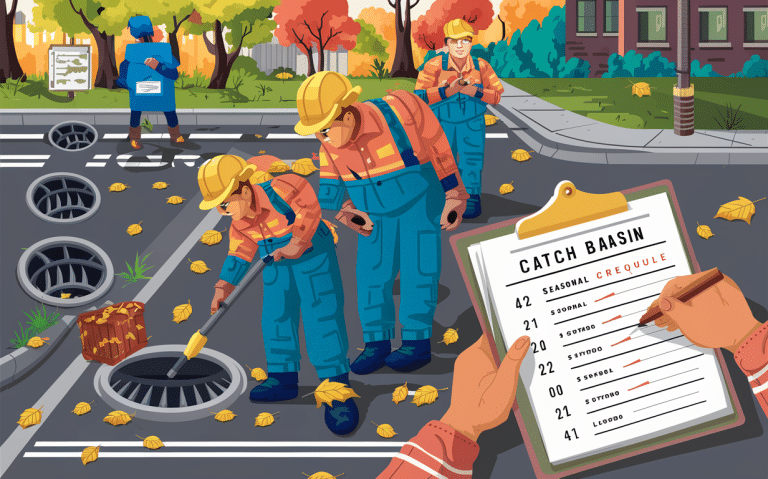RV Park Septic Pumping: Essential Maintenance Tips
Are you an RV park owner looking to maintain a clean and efficient septic system? Regular septic pumping is crucial for the smooth operation of your campground. In this article, we’ll dive into the importance of RV park septic pumping and provide tips on how to keep your system in top shape.
Key Takeaways
- Regular septic pumping prevents clogs, backups, and environmental hazards
- Proper maintenance extends the life of your septic system
- Educating RV owners about responsible waste disposal is essential
- Partnering with a reliable septic service provider ensures timely and efficient pumping

The Importance of Regular RV Park Septic Pumping
RV parks and campgrounds rely heavily on their septic systems to manage the waste generated by visitors. Without proper maintenance, septic tanks can become overloaded, leading to clogs, backups, and potential environmental hazards. Regular septic pumping is the key to preventing these issues and ensuring the longevity of your septic system.
Preventing Clogs and Backups
As RVs and campers dispose of waste into your septic system, solid matter accumulates in the tank over time. If left unchecked, this buildup can cause clogs in the pipes and lead to sewage backups. By scheduling regular septic pumping, you can remove the solid waste before it becomes problematic, keeping your system running smoothly.
Extending the Life of Your Septic System
Investing in regular septic pumping not only prevents immediate issues but also extends the overall life of your septic system. When solid waste is allowed to build up, it can put unnecessary strain on the tank and its components, leading to premature wear and tear. By removing the waste regularly, you can help your septic system last longer, saving you money in the long run.
Maintaining a Healthy Environment
Proper septic maintenance is not only important for the functionality of your RV park but also for the surrounding environment. If a septic system fails due to lack of maintenance, it can lead to the release of untreated sewage into the ground, contaminating soil and water sources.
Regular pumping helps prevent these environmental hazards, ensuring a clean and healthy campground for your guests.

Factors Affecting Pumping Frequency
The frequency at which your RV park septic system needs to be pumped depends on several factors:
Size of Your Septic Tank
The size of your septic tank directly impacts how often it needs to be pumped. Larger tanks can hold more waste, requiring less frequent pumping, while smaller tanks will need to be serviced more often. It’s essential to know the size of your tank to determine an appropriate pumping schedule.
Number of RVs and Occupancy Rates
The more RVs using your septic system, the faster the tank will fill up. High occupancy rates during peak seasons will require more frequent pumping compared to slower periods. Keep track of your occupancy rates to adjust your pumping schedule accordingly.
Type of Waste Being Disposed
The type of waste being disposed of in your septic system can also affect pumping frequency. If RV owners are disposing of non-biodegradable items or harsh chemicals, it can disrupt the natural breakdown process in the tank, requiring more frequent pumping.

Tips for Maintaining Your RV Park Septic System
In addition to regular pumping, there are several steps you can take to keep your RV park septic system in optimal condition:
Educate RV Owners
Encourage RV owners to be mindful of what they dispose of in their tanks. Provide guidelines on proper waste disposal, emphasizing the importance of avoiding non-biodegradable items and harsh chemicals. Post signs in common areas and include information in welcome packets to ensure everyone is aware of the rules.
Install Septic Tank Filters
Septic tank filters help prevent solid waste from entering the leach field, reducing the risk of clogs and backups. These filters should be cleaned regularly to maintain their effectiveness.
Conduct Regular Inspections
In between pumping appointments, conduct regular inspections of your septic system. Check for signs of leaks, unusual odors, or pooling water around the tank. Catching potential issues early can prevent more serious problems down the line.
Partner with a Reliable Septic Service Provider
Choose a reputable septic service provider that specializes in RV park systems. They should have the knowledge and equipment necessary to handle the unique needs of your campground. Establish a regular pumping schedule and maintain open communication to ensure timely and efficient service.
| Pumping Frequency | Tank Size (gallons) | Number of RVs |
|---|---|---|
| Every 6 months | 1,000 – 1,500 | 10 – 20 |
| Every 12 months | 1,500 – 2,000 | 20 – 30 |
| Every 18 months | 2,000 – 2,500 | 30 – 40 |
Note: These are general guidelines and may vary based on occupancy rates and waste disposal habits.

| Signs of Septic System Issues |
|---|
| 1. Slow draining sinks or toilets |
| 2. Gurgling sounds in drains |
| 3. Foul odors near the tank or leach field |
| 4. Pooling water or wet spots around the tank |
| 5. Sewage backups in RVs or campground facilities |
If you notice any of these signs, contact your septic service provider immediately to address the issue and prevent further damage.
Conclusion
Regular RV park septic pumping is essential for maintaining a clean, efficient, and environmentally friendly campground. By understanding the factors that affect pumping frequency and implementing proper maintenance practices, you can ensure the longevity of your septic system and provide a pleasant experience for your guests. Remember to educate RV owners, conduct regular inspections, and partner with a reliable septic service provider to keep your RV park running smoothly.







